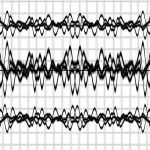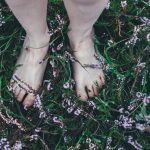Node Smith, ND
A recent research study has confirmed a significant link between common symptoms of schizophrenia and childhood trauma.1 The findings could help develop a more tailored approach, and open the question whether this, and other psychotic disorders, may be recovered from in the future.
The study looked at separated studies of childhood trauma and psychotic symptoms
The study was conducted at the National Centre of Excellence for Youth Mental Health, in collaboration with the University of Melbourne, Port Phillip Prison, and University Hospital of Gran Canaria Dr Negrin, in Spain. The researchers looked at 29 separated studies of childhood trauma and psychotic symptoms. The study was published in the journal Schizophrenia Bulletin.
Alarmingly, all types of childhood trauma had associations with hallucinations
The overarching, and most significant finding was that all types of childhood trauma had associations with hallucinations like those seen in psychotic disorders. Sexual, physical and emotional abuse, all were linked to severe hallucinations and diagnoses of schizophrenia and other psychotic disorders. More specifically, the study showed that childhood sexual abuse is associated with delusions.
There has been a long-held theory that childhood trauma is linked to hallucinations and delusions, however, there has been limited research to confirm this idea.
Symptoms of Psychotic Disorder
Roughly 1 percent of the population experience a psychotic disorder. Usually, symptoms appear between the ages of 18 and 25. Symptoms include detachment from reality, hallucinations, delusions, disorganized thinking, and/or a lack of emotional sensation or motivation.
Study hopes to help target treatment approaches to trauma visible in psychosis
The hope of the study is that it will help inform more targeted treatment approaches to the trauma seen in psychosis – which have largely focused on PTSD, as opposed to the more specific symptoms of hallucinations and delusions. It is also intended that this research will help benefit young patients by increasing self-empowerment. The researchers also suggest that young people presenting with a history of trauma be assessed for psychosis so that symptoms may be caught as early as possible.
Source
- Bailey T, Alvarez-jimenez M, Garcia-sanchez AM, Hulbert C, Barlow E, Bendall S. Childhood Trauma Is Associated With Severity of Hallucinations and Delusions in Psychotic Disorders: A Systematic Review and Meta-Analysis. Schizophr Bull. 2018
Photo by delfi de la Rua on Unsplash
 Node Smith, ND, is a naturopathic physician in Portland, OR and associate editor for NDNR. He has been instrumental in maintaining a firm connection to the philosophy and heritage of naturopathic medicine among the next generation of docs. He helped found the first multi-generational experiential retreat, which brings elders, alumni, and students together for a weekend camp-out where naturopathic medicine and medical philosophy are experienced in nature. Four years ago he helped found the non-profit, Association for Naturopathic ReVitalization (ANR), for which he serves as the board chairman. ANR has a mission to inspire health practitioners to embody the naturopathic principles through experiential education. Node also has a firm belief that the next era of naturopathic medicine will see a resurgence of in-patient facilities which use fasting, earthing, hydrotherapy and homeopathy to bring people back from chronic diseases of modern living; he is involved in numerous conversations and projects to bring about this vision.
Node Smith, ND, is a naturopathic physician in Portland, OR and associate editor for NDNR. He has been instrumental in maintaining a firm connection to the philosophy and heritage of naturopathic medicine among the next generation of docs. He helped found the first multi-generational experiential retreat, which brings elders, alumni, and students together for a weekend camp-out where naturopathic medicine and medical philosophy are experienced in nature. Four years ago he helped found the non-profit, Association for Naturopathic ReVitalization (ANR), for which he serves as the board chairman. ANR has a mission to inspire health practitioners to embody the naturopathic principles through experiential education. Node also has a firm belief that the next era of naturopathic medicine will see a resurgence of in-patient facilities which use fasting, earthing, hydrotherapy and homeopathy to bring people back from chronic diseases of modern living; he is involved in numerous conversations and projects to bring about this vision.





